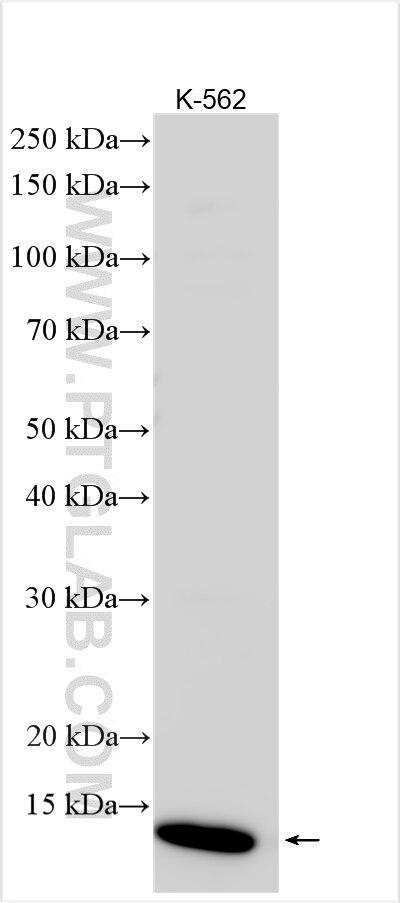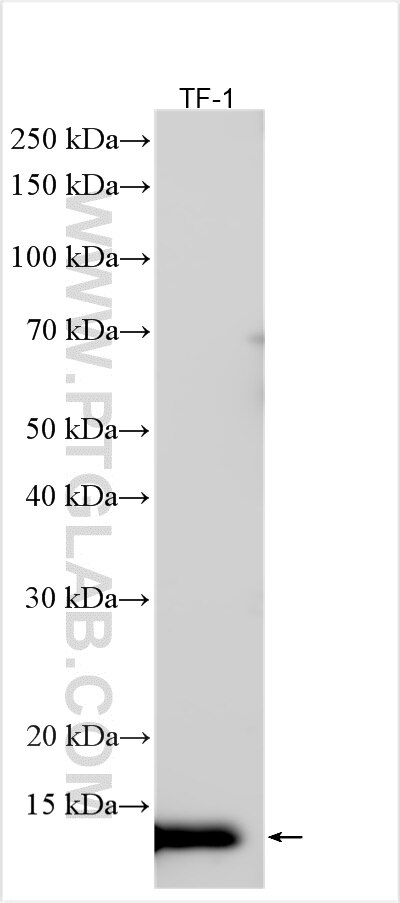Tested Applications
| Positive WB detected in | K-562 cells, TF-1 cells |
Recommended dilution
| Application | Dilution |
|---|---|
| Western Blot (WB) | WB : 1:500-1:2000 |
| It is recommended that this reagent should be titrated in each testing system to obtain optimal results. | |
| Sample-dependent, Check data in validation data gallery. | |
Product Information
31753-1-AP targets HBG2 in WB, ELISA applications and shows reactivity with human samples.
| Tested Reactivity | human |
| Host / Isotype | Rabbit / IgG |
| Class | Polyclonal |
| Type | Antibody |
| Immunogen | HBG2 fusion protein Ag36028 Predict reactive species |
| Full Name | hemoglobin, gamma G |
| Calculated Molecular Weight | 16 kDa |
| Observed Molecular Weight | 14~16 kDa |
| GenBank Accession Number | BC029387 |
| Gene Symbol | HBG2 |
| Gene ID (NCBI) | 3048 |
| RRID | AB_3670105 |
| Conjugate | Unconjugated |
| Form | Liquid |
| Purification Method | Antigen affinity Purification |
| UNIPROT ID | P69892 |
| Storage Buffer | PBS with 0.02% sodium azide and 50% glycerol, pH 7.3. |
| Storage Conditions | Store at -20°C. Stable for one year after shipment. Aliquoting is unnecessary for -20oC storage. 20ul sizes contain 0.1% BSA. |
Background Information
The gamma globin genes (HBG2, encoding Gγ-globin; HBG1 encoding Aγ-globin) are normally expressed in the fetal liver, spleen and bone marrow. Two gamma chains together with two alpha chains constitute fetal hemoglobin (HbF) which is normally replaced by adult hemoglobin (HbA) at birth. Gamma chain production continues into adulthood in some beta-thalassemias and related conditions.
Protocols
| Product Specific Protocols | |
|---|---|
| WB protocol for HBG2 antibody 31753-1-AP | Download protocol |
| Standard Protocols | |
|---|---|
| Click here to view our Standard Protocols |





